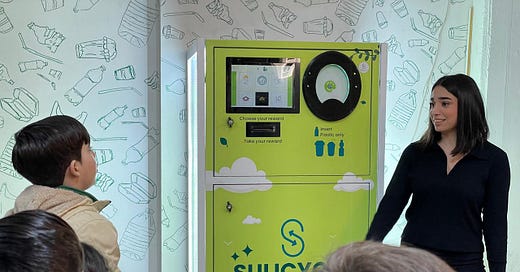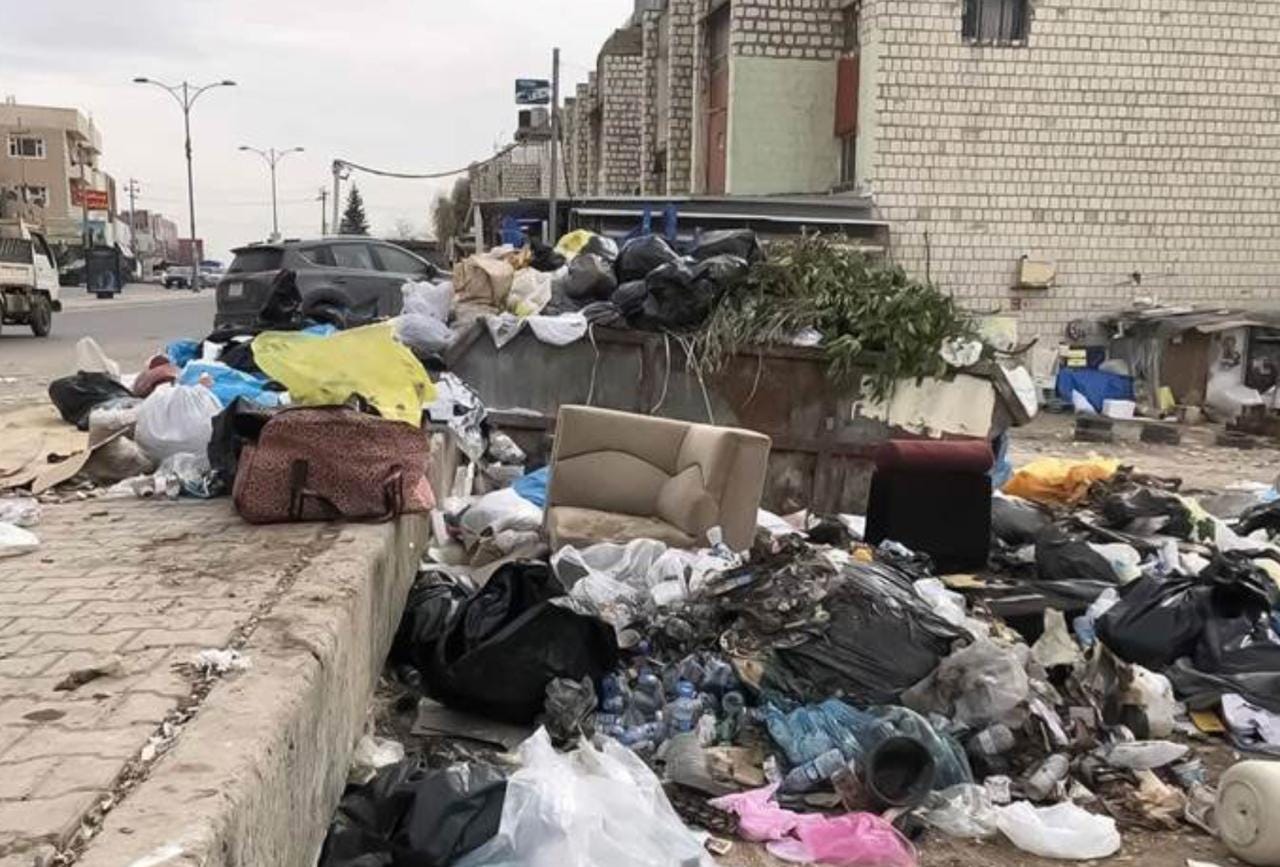Turning Trash Into Treasure
Sulicycle is creating a culture of recycling in Kurdistan by offering rewards for collected rubbish
Plastic bottles litter the streets of Sulaymaniyah, mingling with shopping bags, takeaway cartons, and cigarette packets that collect at the side of the road. Littering has been an issue in the Kurdish city for as long as Prusha Awat can remember. Growing up, it was the norm, but her parents were strict about respecting the environment, encouraging her to lead by example. “They made sure I always threw rubbish in the bin,” she recalls.
It was this upbringing that inspired the 24-year-old to challenge the throw-away culture in Kurdistan by incentivizing recycling and turning rubbish into a resource. The result was SuliCycle, a reverse vending machine that exchanges used plastic bottles for shop and service discounts. “We have a lot of social and economic challenges in Kurdistan—the environment is not a priority for many people. But when they get a discount for recycling, it’s different,” she says.
Awat launched Sulicycle in 2022 after completing her degree in political science and joining an incubator program at Suli Innovation House, a coworking and maker space that allowed her to develop the first prototype of her machine. There are now six Sulicycle machines around the city—five in private offices and one in a cultural center. All are filled daily, but the machine in the Culture Factory always has the most bottles. “People are excited by the machines, especially children,” Awat says.
The next step is to produce a larger model to place in supermarkets and other public spaces. An Innovation Hub grant from Ideas Beyond Borders is funding the production of the new version, which will help her reach more people and popularize her recycling movement. “Prusha has found a way to incentivize recycling and turn it into an everyday habit,” says Faisal Al Mutar, President of Ideas Beyond Borders. “This is how change becomes sustainable—when the benefits outweigh the barriers.”
The most popular reward Sulicycle offers is a 10 percent discount at Soz Cakery, a much-loved patisserie in Sulaymaniyah. For this, recyclers must pay in 10 plastic bottles, which could also get them a 10 percent discount at local coffee shops or a busy Kurdish Korean food outlet. For ten bottles, they could also opt for 10 percent off a doctor’s appointment. Both parties benefit, giving vendors an opportunity to increase their client base while shoppers embrace the opportunity to save during difficult economic times.
Public sector wages have gone unpaid and households have struggled across the Kurdistan Region of Iraq since the closure of a vital oil pipeline last year precipitated a major economic crisis. Small savings on everyday items make a big difference, Awat says. “People don’t have much money for small luxuries at the moment, like cakes and takeaway coffee, but with a discount, they can manage it.”
Each day, her team gathers up used bottles from the Sulicycle machines to be sold to a recycling plant at a rate of 500 Iraqi dinars (38 cents) per kilo. In the past six months, she has collected more than 3,000 kilos of plastic, with 10 percent of the proceeds going to a children’s cancer ward at a local hospital.
In the future, she hopes to expand to other cities across Kurdistan, but for now, she is focusing on normalizing recycling and reducing the amount of waste from plastic bottles on the streets in her home city. “Why do other countries have a culture of recycling while Kurdistan does not? Sulicycle can change this mindset and show that we can be a part of the global recycling movement in Sulaymaniyah,” she says.
This article was written by Olivia Cuthbert.





